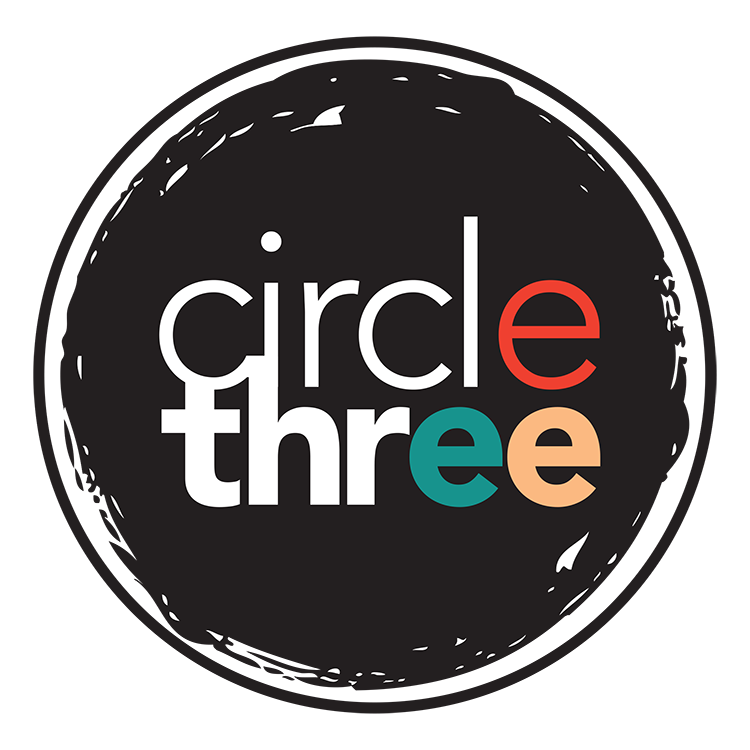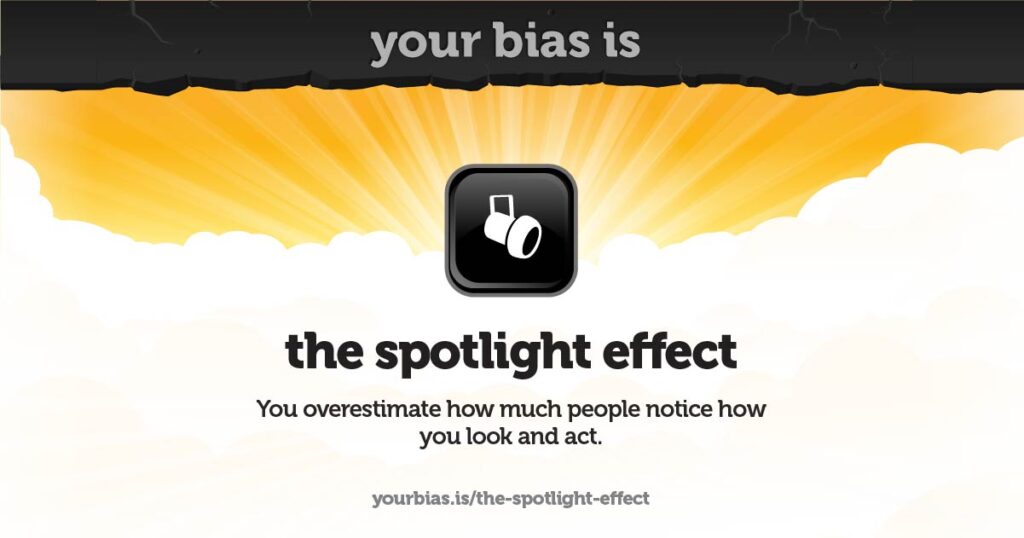This is one part in a series on Cognitive Biases and Logical Fallacies in marketing. Read more here.
The “spotlight effect” is a cognitive bias that refers to the tendency of individuals to believe that they are being noticed and observed more than they actually are. It is the feeling that there is a spotlight on them, attracting attention and scrutiny from others. In other words, people often overestimate how much their appearance, behavior, or actions are the center of other people’s focus – the same can happen with brands and organizations.
This bias can manifest in various situations, such as during social interactions, public speaking, or in everyday scenarios where individuals might feel self-conscious about their appearance or actions. For instance, someone may believe that a small blemish on their face is much more noticeable to others than it actually is, or that people are paying close attention to their every move during a presentation when, in reality, others may be more focused on their own thoughts or concerns.
The spotlight effect is often driven by self-consciousness and a heightened sense of self-awareness. People tend to place more importance on their own experiences, emotions, and appearances, assuming that others are as attentive to them as they are to themselves.
Research in psychology has shown that the spotlight effect is quite common and affects individuals to varying degrees. Understanding this bias can be helpful in overcoming feelings of self-consciousness and reducing social anxiety. Recognizing that others are not as focused on our every detail as we might think can lead to a more relaxed and confident demeanor in social situations. Additionally, realizing that most people are preoccupied with their own thoughts and concerns can help individuals feel less judged or scrutinized by others.
Spotlight Effect on Businesses
The “spotlight effect” bias is not only prevalent in individuals but can also be observed in companies when marketing their waste and recycling services to customers. In this context, the spotlight effect bias refers to the tendency of waste management companies to believe that their services are receiving more attention and consideration from potential customers than they actually are. We think our business is pretty important, but to many customers trash is just another utility…and we’d rather not think about it too much!
When marketing their waste and recycling services, companies may overestimate the extent to which customers are actively seeking and evaluating their offerings. They may assume that their brand and messaging are the center of attention for potential clients, leading them to believe that their services are more unique or remarkable than those of their competitors. In an industry that is heavily impacted by changes in price, this can add more pressure on companies trying to stand out from the competition.
This bias can influence marketing strategies and may lead companies to oversaturate their messaging or make exaggerated claims about the benefits of their waste management solutions. They might invest significant resources into promotional campaigns, thinking that customers are closely scrutinizing every detail of their services. However, in reality, potential customers may not be as intensely focused on the company’s offerings as the company itself believes.
Let’s Fix It
To mitigate the spotlight effect bias in marketing waste and recycling services, companies should take a more balanced approach. Instead of assuming that they are constantly in the spotlight, they should conduct thorough market research to understand their target audience’s actual needs and preferences. By focusing on providing valuable and relevant information about their services, companies can ensure that their marketing efforts are genuinely engaging and meet the needs of potential customers.
Moreover, acknowledging that customers have their own concerns and priorities can help companies tailor their messaging to address specific pain points effectively. By avoiding an overly self-centered marketing approach, waste management companies can build stronger connections with customers and establish a more authentic and trust-based relationship.
Interested in Learning More?
We’ll cover more cognitive biases and logical fallacies in upcoming blog posts, but if you’re eager to learn more and access free resources, check out School of Thought. If you’re interested in see how Circle Three Branding applies these to your marketing strategy, contact us.

